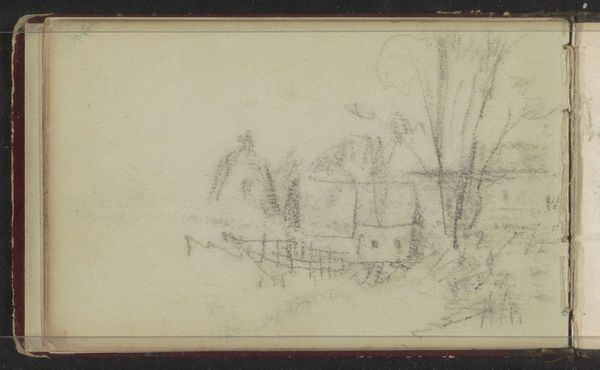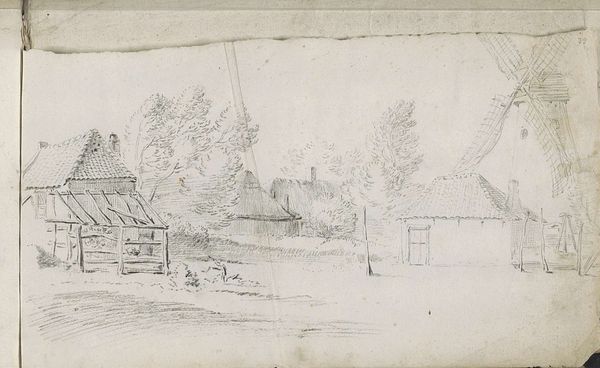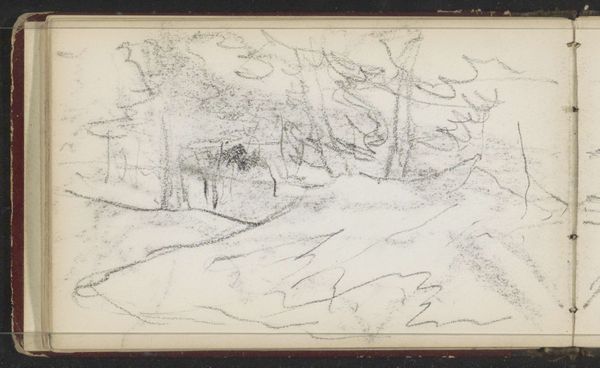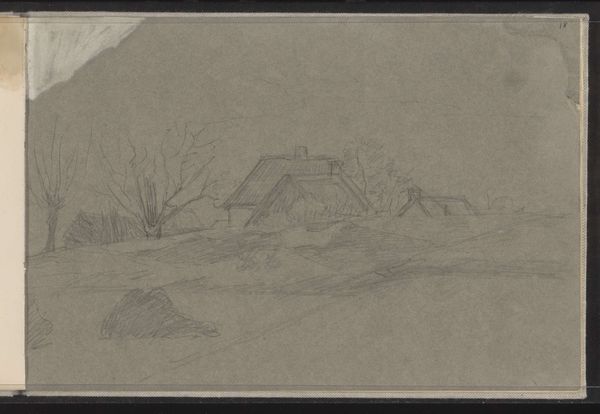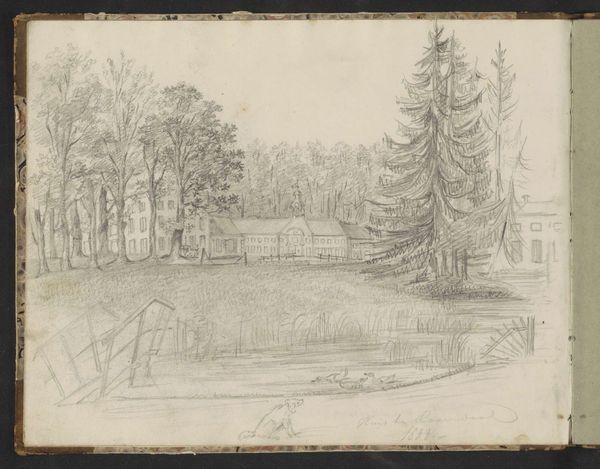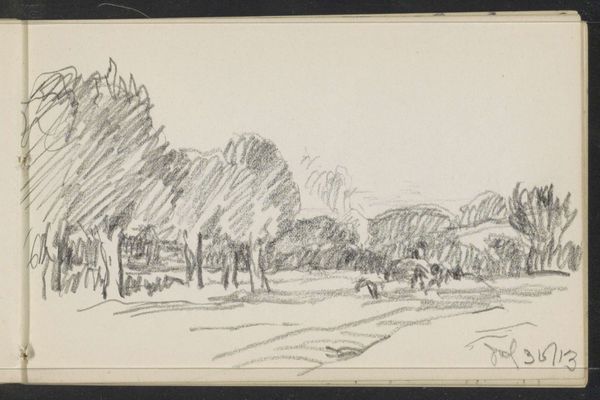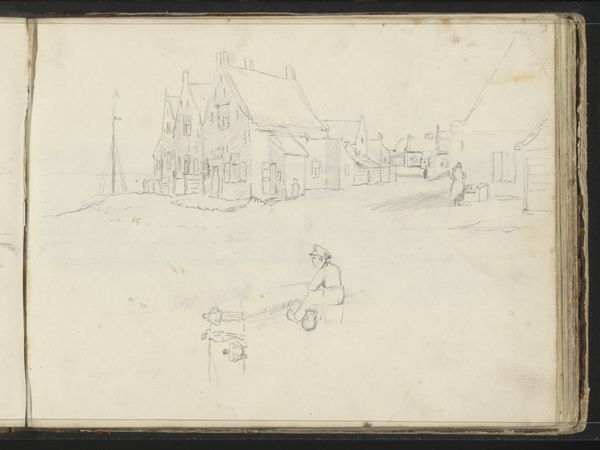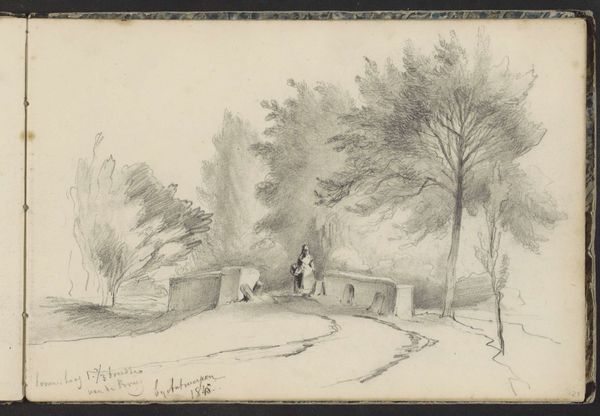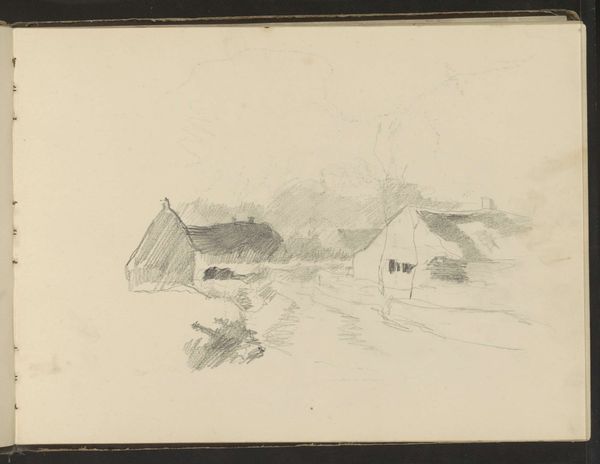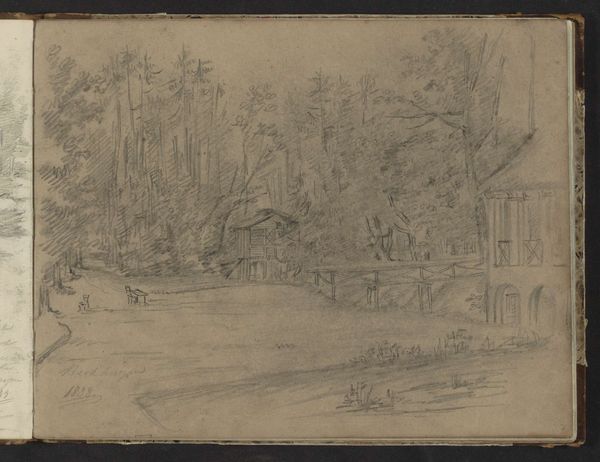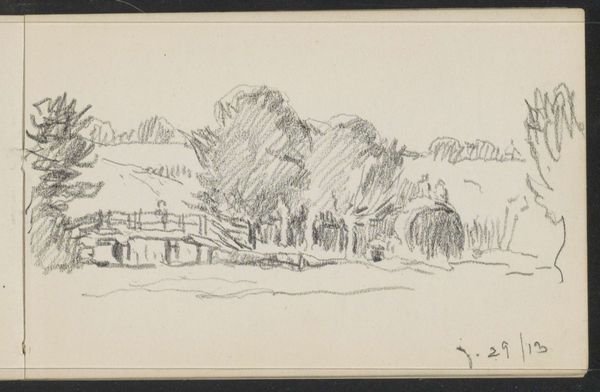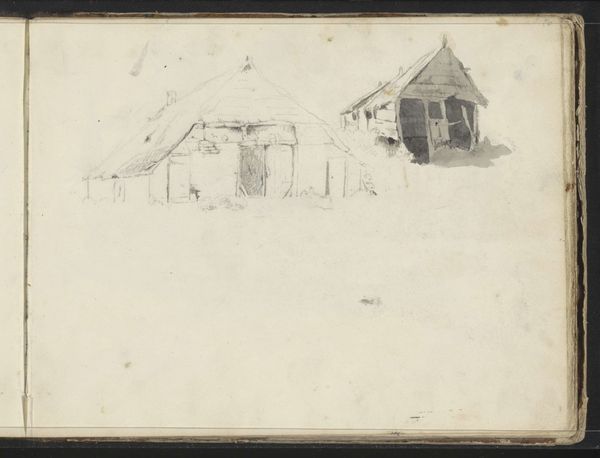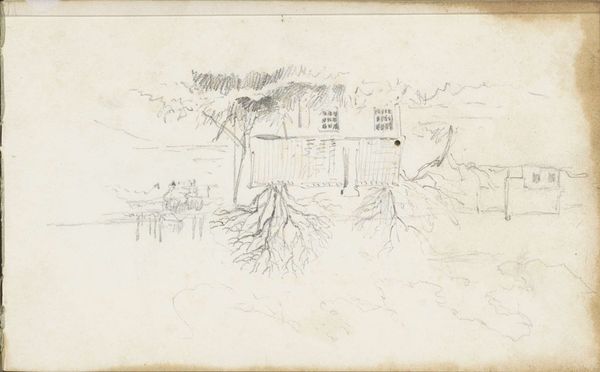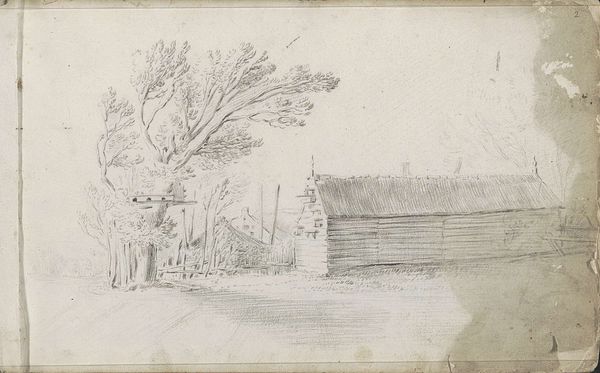
drawing, pencil
#
drawing
#
dutch-golden-age
#
landscape
#
pencil
#
genre-painting
#
realism
Copyright: Rijks Museum: Open Domain
Curator: We’re looking at Ferdinand Oldewelt’s pencil drawing, "Erf te Laren," made sometime between 1908 and 1923. What strikes you first? Editor: The rawness of it, that very immediacy. The visible pencil strokes sketching out forms, nothing is hidden. It feels incomplete yet very satisfying, with its muted tone. The way the textures emerge primarily from the layering and direction of lines intrigues me. Curator: And those textures evoke something, don't they? Oldewelt’s Laren, a village with deep ties to the Dutch Golden Age, became a haven for artists seeking a connection with the past. There is an enduring connection to the land represented here, in almost meditative reflection of nature's permanence. Editor: The landscape, depicted here, suggests the essence of rural Dutch life. It's about more than just accurately rendering a place; it is a statement on space and visual organization that invites consideration of how the parts build to an expressive, cohesive whole. How interesting, also, the house as a symbol… a traditional form drawn so starkly with little details, it reduces architecture to archetype. Curator: Precisely! The cottage, sturdy but simple, anchors the image—it’s almost archetypal in its representation of home and heritage, against which the ethereal nature seems almost overpowering, hinting at our insignificance. Then there are those figures sitting outside: timeless witnesses within this rural drama. Do they suggest a memory of past inhabitants, present lives, or enduring customs? Editor: They also establish a narrative—suggesting scale and a kind of unassuming peaceful existence that contrasts starkly against modernity. Note how subtly Oldewelt handles the composition: the figures draw you to the horizon line but then pull you to ponder that fascinating convergence of lines into an expressionistic effect. Curator: It offers a sense of tranquility rooted in simplicity, perhaps calling to mind familiar aspects of country life that withstand fleeting historical moments, acting as a reminder of origins. Editor: It does, it truly does. What began as what appears a sketch unravels a world to consider—all in a few well-placed lines. Curator: Indeed. I am drawn back to Oldewelt’s world and a lasting sense of connectedness.
Comments
No comments
Be the first to comment and join the conversation on the ultimate creative platform.
